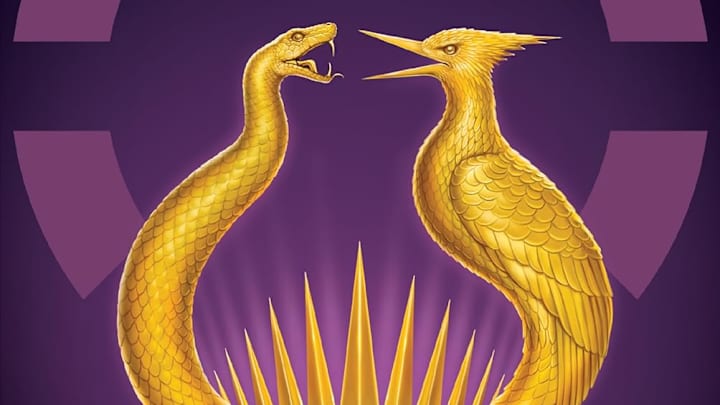When The Hunger Games trilogy first came out, I vividly remember talking to my brother about how I hoped one day Suzanne Collins would return to Panem with prequel books about some of my favorite characters. The stories I wanted the most were the story of Haymitch and his Quarter Quell and the story of Finnick and Annie. I never expected it would happen, but when Sunrise on the Reaping was first announced my jaw dropped because the book I wanted the most from her actually was written into existence. I had high hopes for this book, and every single one of them was exceeded.
This book takes us back in time to the 50th Hunger Games, but before the story starts Suzanne Collins sets the scene by giving important quotes about propaganda - a very clear indicator of one thing: everything we thought we knew about Haymitch's games based on what was shown in Catching Fire shouldn't be trusted.
The thing I appreciated most about this book was how many of my favorite victors from Catching Fire made an appearance. It provided entirely new insights into Mags, Beetee, and Wiress - and honestly, it helped me understand how they shaped some of the younger victors like Finnick and Annie. It also gave an origin story to my beloved Effie Trinket, who was my very first cosplay when the first of the movies came out. Seeing all of these beloved characters in an entirely new light made me want to immediately reread the original trilogy in a way I never expected. To see how it fits together, to see how their origins shaped who they were, and most importantly, to see how the groundwork they laid for the rebellion was set.
Sunrise on the Reaping also did something extraordinary none of the previous books have done: it let us get to know all the tributes. Which is rather impressive for the fact there were 48 instead of the normal 24 we have seen in every other book. Every tribute had a name, a personality, and an alliance we knew about. And this made the book not only stronger but more devastating. From the ambitious Ampert, to the intelligent Wellie, to the oddsmaker Wyatt, the sweetheart Louella, and the vicious Maysilee we fall in love with so many different personalities, only to have our hearts ripped out time and time again as their cannons go off (I feel like this isn't that big of a spoiler, it is a Hunger Games book after all). It's such a good reminder of how terrible the Hunger Games are at their core, especially knowing it takes another 25 years before they finally end for good.
As I mentioned before, one of the biggest themes within the book is propaganda, and it's a good reminder for today's world. Things are edited, moved around, and context is changed - making what Katniss and Peeta see in Catching Fire, nothing more than a pretty lie. Not only did the events change, but who Haymitch was changed too. His personality is so vibrantly different within this book, it shows how the edit forced him to become exactly who he was presented to the world. Watching Haymitch break is tragic, and seeing how the rebellious 16-year-old turns into the 40-year-old hermit of a mentor we meet in The Hunger Games.
Overall, I cannot write more about this book without spoiling the entire thing - which I truly do not want to do. It gives so much insight as to how President Snow was able to hold onto power for so long while seeing how the Capitol continued to be tricked into believing these horrific games were for the greater good. But most importantly, this book teaches a timely lesson, one I hope readers latch onto as we work towards a better future.
Sunrise on the Reaping is available through Scholastic
